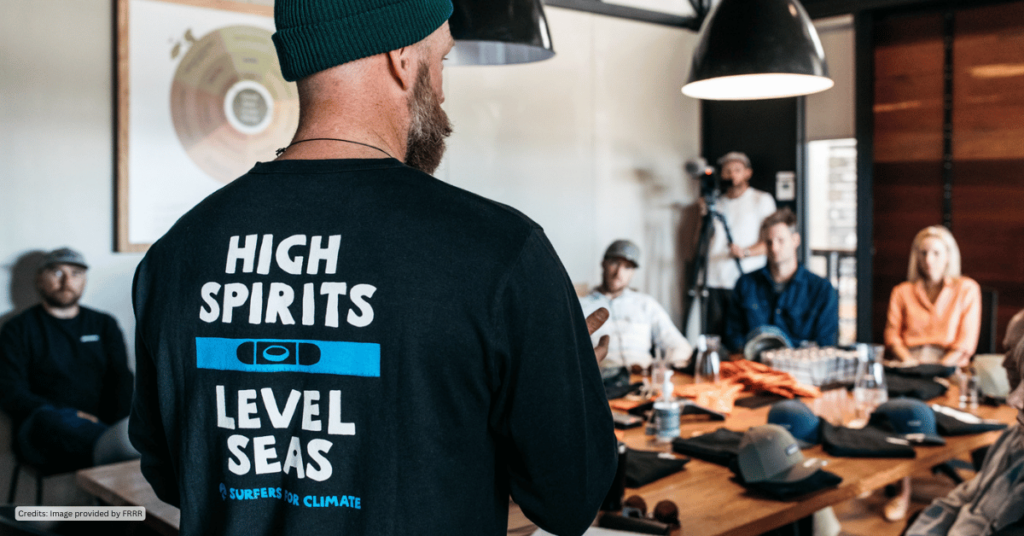Funding is now available for remote, rural and regional communities seeking to embrace practices and solutions that reduce emissions and address the impacts of climate change for positive and sustainable environmental, social and economic outcomes.
FRRR’s Community Led Climate Solutions program (CLCS) is offering grants to not-for-profit organisations (NFPs) via two streams, with a total funding pool of $625,000 available for initiatives that address climate change at a local level.
- Stream 1 – Engage and Deliver: Grants up to $20,000 for local projects promoting or actioning practices and solutions that can reduce emissions and benefit their community; and
- Stream 2 – Scaling: Grants from $20,001 to $75,0000 for projects scaling locally-led initiatives, that alleviate socio-economic challenges and enable communities to thrive.
The Scaling stream is new this round and recognises that community organisations in remote, rural and regional Australia can find it challenging to access funds for local climate solutions initiatives, when their focus is often on alleviating disadvantage in their community. That’s why FRRR, with the support of its partners, is pleased to offer grants to strengthen and scale up existing projects.
Grants can be used by communities to educate locals and adopt clean energy practices; reduce emissions; implement low carbon power sources; embrace reuse and regenerative practices; support solutions that deliver sustainable agriculture and food systems; encourage biodiverse ecosystems; or activities designed to manage change and support the livelihoods of people reliant on industries in transition.
Sarah Matthee, Climate Solutions Portfolio Lead at FRRR, said the strong response from local groups to the first round of the program emphasised the active role that rural communities want to play in initiatives that capitalise on cleaner and more sustainable climate solutions that will benefit local people.
“Addressing the impacts of a changing climate requires a long-term outlook, backed by local solutions.”
“We know that rural NFPs are eager to get on the front foot and ensure that no one is left behind. Local people can be best placed to lead just transitions and we are here to actively support rural communities in this process,” Matthee explained.
“We are grateful to partner with a growing number of like-minded organisations including Boundless Earth, Hand Heart Pocket, Paul Ramsay Foundation and most recently Elders Insurance backed by the QBE Foundation.”
According to Matthee, organisations like FRRR are committed to funding community-led solutions that reduce emissions and address the impacts of climate change across remote, rural and regional Australia.
Dale Gleeson, General Manager at Elders Insurance, said that Elders Insurance, backed by QBE and the QBE Foundation, is proud to support the creation of strong, resilient, and inclusive communities.
“As one of Australia’s largest regional and rural insurance providers, we are delighted to be joining with FRRR on this critical role of supporting community-led climate solutions activities across remote, rural, and regional Australia,” said Gleeson.
The grants can fund community-driven projects that educate and engage local people on the transition to renewable energy, like the Gippsland Climate Change Network Inc’s ‘New Energy Power Pops’ project, which received a $20,000 grant in the first round of CLCS.
The funding supported community education targeting young people at local markets and events in Traralgon, Victoria, including using virtual reality to inform people about the renewable energy transition industry in the Latrobe region and to promote employment and skills training opportunities.
The funding can also be used for projects that reduce emissions, like the Gympie and District Sustainability Alliance’s Building Energy Efficiency Project (BEEP) in Queensland. Community Action Inc. on behalf of the Alliance, was awarded a $20,000 grant to support solar installation and energy efficient infrastructure upgrades for their tenants.
The purpose of the upgrades was to reduce emissions and provide equitable access to renewable energy cost benefits, with a further goal of promoting solar and battery systems to other housing providers.
Applications for the Community Led Climate Solutions are now open.
For the Scaling Grants ($20,001 – $75,000), an expression of interest (EOI) needs to be lodged by 5pm AEST, 22 August, with shortlisted applicants notified by 4 September. Applications for both streams close 5pm AEST, 26 September.
Menchie Khairuddin is a writer Deputy Content Manager at Akolade and content producer for Third Sector News. She is passionate about social affairs specifically in mixed, multicultural heritage and not-for-profit organisations.
- Menchie Khairuddinhttps://thirdsector.com.au/author/menchi-kakolade-co/
- Menchie Khairuddinhttps://thirdsector.com.au/author/menchi-kakolade-co/
- Menchie Khairuddinhttps://thirdsector.com.au/author/menchi-kakolade-co/
- Menchie Khairuddinhttps://thirdsector.com.au/author/menchi-kakolade-co/











